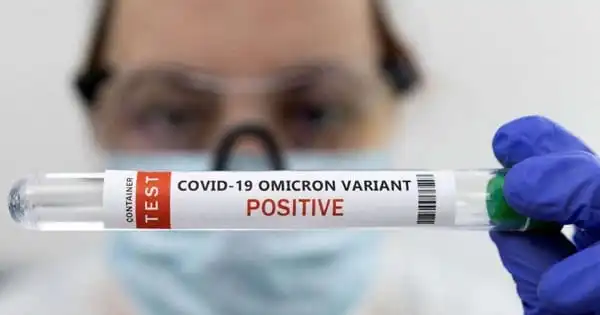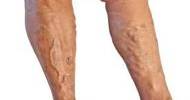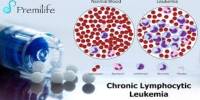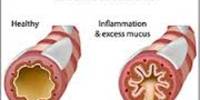People who have had Covid-19 are more likely to acquire type 2 diabetes. This is the result of a study conducted by DDZ, DZD, and IQVIA and published in Diabetologia. There is insufficient data to determine if people with diabetes are more prone than the general population to contract COVID-19. The issue for persons with diabetes is that they are more likely to have worse problems if they contract the virus, not that they have a higher probability of contracting it. Furthermore, the more health conditions a person has, the greater their likelihood of developing those significant COVID-19 complications. If they contract the virus, the elderly are also at a higher risk of complications.
According to research, the human pancreas can likewise be a target of the SARS-CoV-2 (severe acute respiratory syndrome coronavirus type 2 virus). Reduced quantities of insulin secretory granules in beta cells and decreased glucose-stimulated insulin release have been seen following a Covid-19 infection. Furthermore, despite having no prior history of diabetes, some individuals acquired insulin resistance and had high blood glucose levels following Covid-19 illness. Infection with SARS-CoV-2 may result in a significant release of pro-inflammatory signaling molecules (cytokines). After a SARS-CoV-2 infection, the immune system may remain activated for months, impairing insulin efficacy (muscle, fat cells, liver).
However, it is unknown if these metabolic abnormalities are transitory or if Covid-19 illness increases the likelihood of developing diabetes in the future. Researchers from the German Diabetes Center (DDZ), the German Center for Diabetes Research (DZD), and IQVIA (Frankfurt) conducted a retrospective cohort study to answer this question.
The goal of our study was to look into the occurrence of diabetes following SARS-CoV-2 infection. The study emphasizes that while this may not affect those with moderate COVID-19, recovered patients should be aware of warning signs and symptoms such as fatigue, frequent urination, and increased thirst and seeks medical attention as soon as possible.
Wolfgang Rathmann
A representative panel of 1,171 medical practices from across Germany participated in the cohort study (March 2020 to January 2021: 8.8 million patients). Follow-up was extended until July 2021. “The goal of our study was to look into the occurrence of diabetes following SARS-CoV-2 infection,” stated the first author Wolfgang Rathmann, head of the DDZ’s Epidemiology Research Group.
The researchers employed persons with acute upper respiratory tract infections (AURI), which are also frequently caused by viruses, as a control group. The two groups were matched in terms of gender, age, health insurance, month of Covid-19 or AURI diagnosis, and comorbidities (obesity, hypertension, high cholesterol, heart attack, stroke). Patients receiving corticosteroid medication were not allowed to participate in the trial.
35,865 persons were diagnosed with Covid-19 during the study period. “According to our findings, persons with Covid-19 were more likely to acquire type 2 diabetes than people with AURI. Diabetes was more common in persons infected with Covid-19, at 15.8 per 1000 people per year, compared to 12.3 per 1000 people per year in people infected with AURI. According to statistical study, the incidence rate ratio (IRR) is 1.28. Simply put, the relative risk of developing type 2 diabetes was 28% greater in the Covid-19 group than in the AUR group “group,” Rathmann summarized the findings.
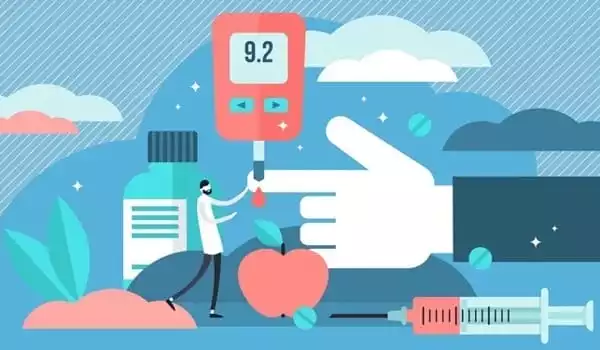
Although type 2 diabetes is unlikely to affect the great majority of persons with mild Covid-19 disease, the authors advise anyone who has recovered from Covid-19 to be aware of the warning signs and symptoms, such as fatigue, frequent urination, and increased thirst, and to seek early treatment.
Researchers chose persons with acute upper respiratory tract infections (AURI), which are frequently caused by viruses, for the control group. The two groups were matched for gender, age, health insurance, COVID-19 month, and diagnosis as comorbidities.
35,865 patients were diagnosed with COVID-19 over the study period. They discovered that the incidence of diabetes was 15.8 per 1,000 people per year, compared to 12.3 per 1,000 persons per year with AURI. According to statistical study, the incidence rate ratio is 1.28. This effectively means that the COVID-19 group had a 28% higher risk of getting type 2 diabetes than the AURI group.
Previous research has suggested that SARS CoV-2 can target the human pancreas, resulting in fewer insulin secretory granules in beta cells and impaired glucose-stimulated insulin production. Patients with no prior history of diabetes have also been demonstrated in studies to acquire insulin resistance and high blood glucose levels.
The study emphasizes that while this may not affect those with moderate COVID-19, recovered patients should be aware of warning signs and symptoms such as fatigue, frequent urination, and increased thirst and seeks medical attention as soon as possible.
